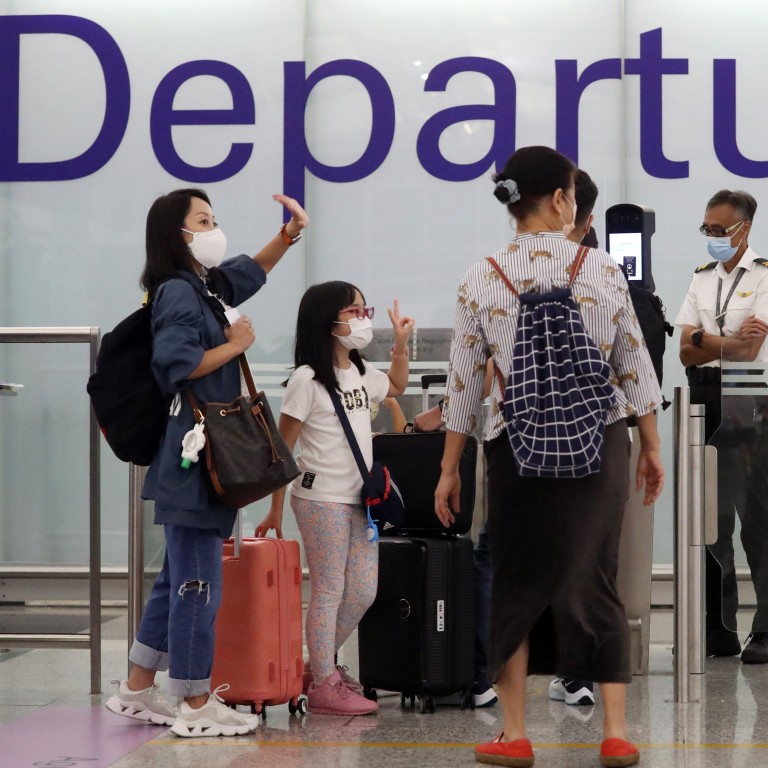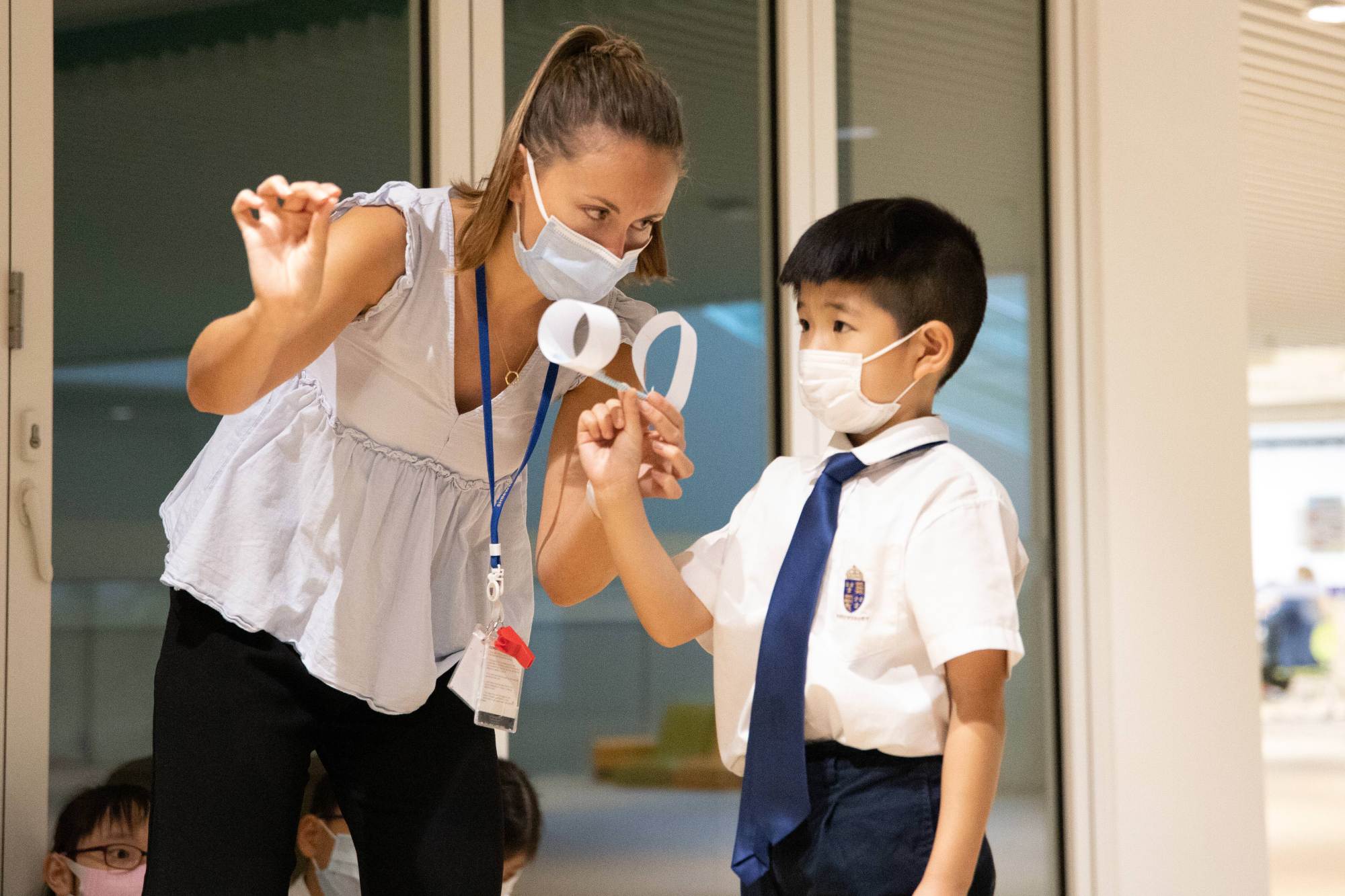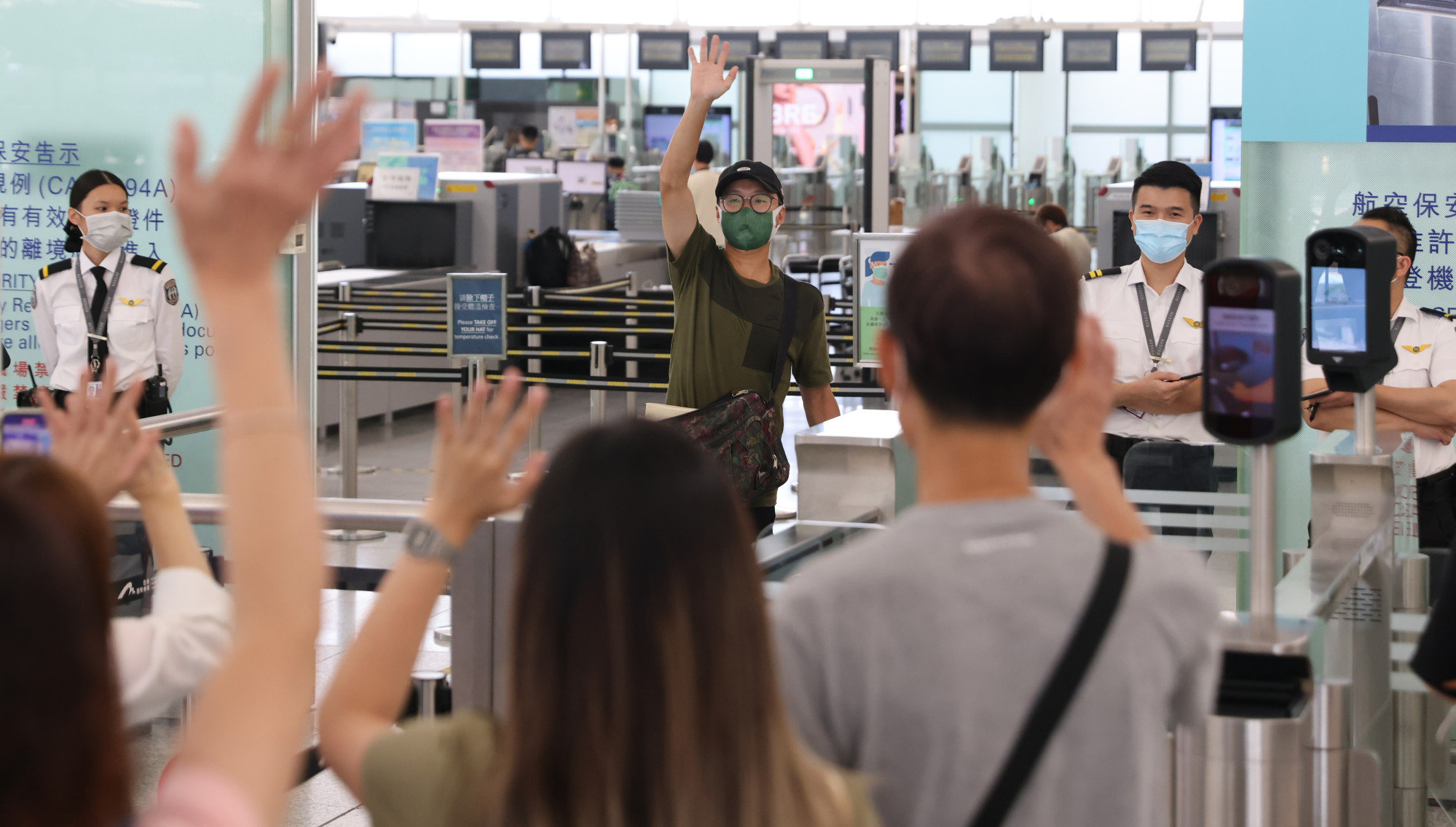
Pandemic and political factors have combined to take the shine off Hong Kong as a teaching destination forcing the city’s international schools to re-examine how they recruit and retain staff
- Pandemic restrictions and political factors have led to an unprecedented exodus of teachers with some international schools losing as much as 30 per cent of their staff
- Travel restrictions are one area of sensitivity within the profession but there are opportunities to recruit from a younger, more flexible demographic
Hong Kong’s status as one of the top teaching destinations in the world has never been more vulnerable.
The city has the densest collection of prestigious international schools in the world, which offer great wages, benefits, working conditions and well-behaved students of an elite academic standard. As a result, top teachers have migrated from Europe, North America and across Asia to pursue their careers in Hong Kong.
This, in turn, made the city a popular destination for expats of various professions, as they knew their children would have access to a world-class education, in what became a very healthy self-sustaining ecosystem.
But as more expatriates leave the city due to Covid-19 restrictions and other political factors, so too are teachers and students. According to an Education Bureau report in May, at least 4,050 teachers or 7.6 per cent of the educator workforce have left their jobs in the current school year – a 70 per cent increase from the previous year. For international schools, the situation is even worse, as some schools have reportedly lost 30 per cent or more of their staff this year alone.
Moving forward, international schools must now focus on what they can control – which is retaining and recruiting top teaching talent. Indeed, this is not only important for schools, but for Hong Kong’s expatriate ecosystem as a whole, in which high-level teachers have always been an integral part.
Good Schools Guide talked to principals of some of Hong Kong’s top international schools about what the city’s schools must do moving forward.

Recruitment and retention
“The rosy view of teaching in Hong Kong has been challenged somewhat in the last twelve months,” said Ben Keeling, principal at Shrewsbury International School. “Political protest was followed by viral spread that now holds universal relevance. While interest remains strong, applicants certainly require a greater deal of reassurance than may have been the case a year or so ago. “And recruitment is only part of the equation – retention of high calibre staff remains a consistent focus for any employer: considerate management of arising concerns is a particularly critical skill during times of increased anxiety.”
Keeling believes that good preparation is the key to successful recruitment, and with international travel now heavily restricted, schools must rely more heavily on digital conferencing tools seeing as face-to-face recruitment for overseas teachers is close to non-existent.
His advice to schools moving forward is to write a clear job description for potential hires that is well positioned within Tes – a well-known UK-based publication aimed at education professionals – detailing desired attributes as well as key responsibilities. This should help hiring panels in their shortlisting process and offer a key fulcrum for panel members as they weigh interview questions and consider responses.
When it comes to digital interviews, Keeling advised: “Consider the height of your web camera, your [the interviewer] positioning and the background available. Keep good ‘eye’ contact, avoid your own reflection. And do your homework, diligently pick through applications identifying key items of note for reference and discussion and above all, be on time.”
Staff retention is, according to Keeling, a “far more nuanced undertaking” than recruitment. It is largely based on the relationship nurtured between the school and its teachers over a substantial period of time, and of the consistency of experience and opportunity afforded.
“There are no short cuts when it comes to care, diligence and professional nourishment,” he said. “It is important to trust, nurture and promote the work of your team regularly and routinely. Most international schools require staff to renew their contracts prior to winter break, so clarifying the process of renewal and the associated timeline early can help to alleviate some of the associated pressure.”
Keeling added that open conversation and timely reminders can help keep everyone on track. Employers should be on-hand to tackle questions, concerns and arising queries, and work as transparently as possible in support of individual circumstances, while remaining cognisant of the need to maintain a fair, sincere application process.
“While recruitment and retention of staff are a relevant focus for any organisation, within education, teachers are even more critical,” he said. “The quality of teachers determines the quality of a school.
“If I have learned anything throughout my time in Hong Kong, it is that challenge brings opportunity,” Keeling noted. “With a growing number of international schools now competing for the very best candidates in an increasingly competitive marketplace, there is plenty of room to push the boundaries and work the margins.”
Strength through adversity
FIS, also known as Lycée Français de Hong Kong, is the largest international school in Hong Kong. It is one of several schools with a “dual stream” option: an international stream which teaches primarily in English, and a French stream where classes are taught in French.
This has required the school to take on two different recruitment and retention campaigns for the separate streams. For example, recruiting more teachers locally for the international stream, and pursuing more aggressive online hiring campaigns for the French one.
“The international stream is in a more fortunate position in that it can recruit from within Hong Kong more easily; so for the last two years, we have recruited 95 per cent of our new staff from Hong Kong,” said Francois Xavier Gabet, head of school at FIS. “Every cloud has a silver lining and this means that the excellent teachers in Hong Kong now have an increased chance of movement within the city.”
He noted that the French stream has faced greater hurdles, given that Covid-19 restrictions have made it impossible for the school to organise face-to-face interviews in France. They have had to participate in large-scale online recruitment events organised by Profs Du Monde – an online job portal for French teachers – as well as their connections within the Agence pour l’Enseignement Français à l’Étranger network – which attracts a lot of French teachers every year.
“Thanks to the strong and excellent reputation of the Lycée Français de Hong Kong, we received a large number of very good applications and have been able to recruit all the teachers needed,” Gabet said.
Still, he believes the problems that Hong Kong schools are facing are far from overblown.
We have definitely seen a decrease in the number of teachers applying from our traditional recruitment areas, particularly from the UK and many other international schools. It feels that we are now at a pivotal point.
“We are witnessing a lot of teachers that have been [here] a long time decide that they need to return to their domicile for family reasons; it has been a tough two and a half years,” Gabet said. “We have definitely seen a decrease in the number of teachers applying from our traditional recruitment areas, particularly from the UK and many other international schools. It feels that we are now at a pivotal point.”
He believes that teachers are carefully reviewing and seeing that Hong Kong is emerging from the pandemic and that there is “cautious optimism”. However, if things were to tip back into shutdowns and harsh quarantines, then that cautious optimism would soon evaporate.
As Gabet puts it, “Confidence in Hong Kong is returning, but that confidence is fragile”.
Hong Kong schools have had to overcome a tremendous amount of adversity, having been forced to switch to online learning on and off with so little time to prepare. This has been a big reason so many teachers have left, and has been the most difficult selling point during the recruitment process. However, Gabet thinks schools should wear this adversity like a badge of honour.
“Schools have been outstandingly adaptable in ensuring that education has continued online,” he said. “Whilst, of course, this is not perfect and doesn’t replace the quality of face-to-face interaction, it has maintained high standards. Schools need to be confident enough to say these things.”
Finally, Gabet strongly believes that it is now on the government to help schools recruit top talent.
“Legislation needs to strongly communicate that the worst is over and that there will be no return to the lengthy quarantine and school closures,” he said. “They also need to have a well-defined and clear road map which takes us further forward. They should be promoting Hong Kong as Asia’s world city. We think that this reputation has taken somewhat of a beating recently.
“The government needs to make sure that the message is loud and clear, that Hong Kong is back on its feet and ready to move forward confidently and that high quality international schools provide excellence for all students.”

Preventing a brain drain
Ruth Benny, head girl and founder at Top Schools, an education consultancy, believes that Hong Kong schools need to adapt their recruitment strategy towards a younger demographic as they are “willing to accept additional challenges to further careers, earn a healthy income and explore the world.”
“Teachers with children risk too much with the constant threat of schools closing and the loss of face-to-face teaching, more extreme travel restrictions plus quarantine, extreme vaccine requirements, restricted social life and so on,” she explained. “Larger schools will need to supplement their professional development, yet smaller schools will struggle. Whether the parents paying exorbitant fees will accept lesser experienced teachers remains to be seen.”
Finally, Christopher Chadwick was head teacher at FIS for 16 years and more recently has been principal of Korean International School for the last six years. The passionate veteran said that throughout the pandemic, teachers have felt inadequate support from their leadership teams, while others spoke of a lack of professional training and development. He strongly believes they need to be treated better.
“Young teachers are leaving to pursue other career opportunities or pursue further studies, while senior teachers are opting for early retirement,” he said. “To ease the situation and slow down the teacher exodus, we must improve teacher preparation and reduce costs to enter the profession, strengthen hiring practices and personnel management, provide quality mentoring and induction for beginning teachers, improve working conditions by reducing class sizes, and increase salaries.”
Chadwick finished by noting: “At least 5,720 teachers have left Hong Kong’s local school system during the current 2021 to 2022 academic year so far, according to a Legislative Council document. That represents a more than 50 per cent rise in ‘drop-out teachers’ from the previous school year. Let’s stop this now.”
The disparity between these official figures and those given in May by the Education Bureau tells its own story: the uncertainty is pervasive, and sadly, while it is, the damage is likely to continue.
